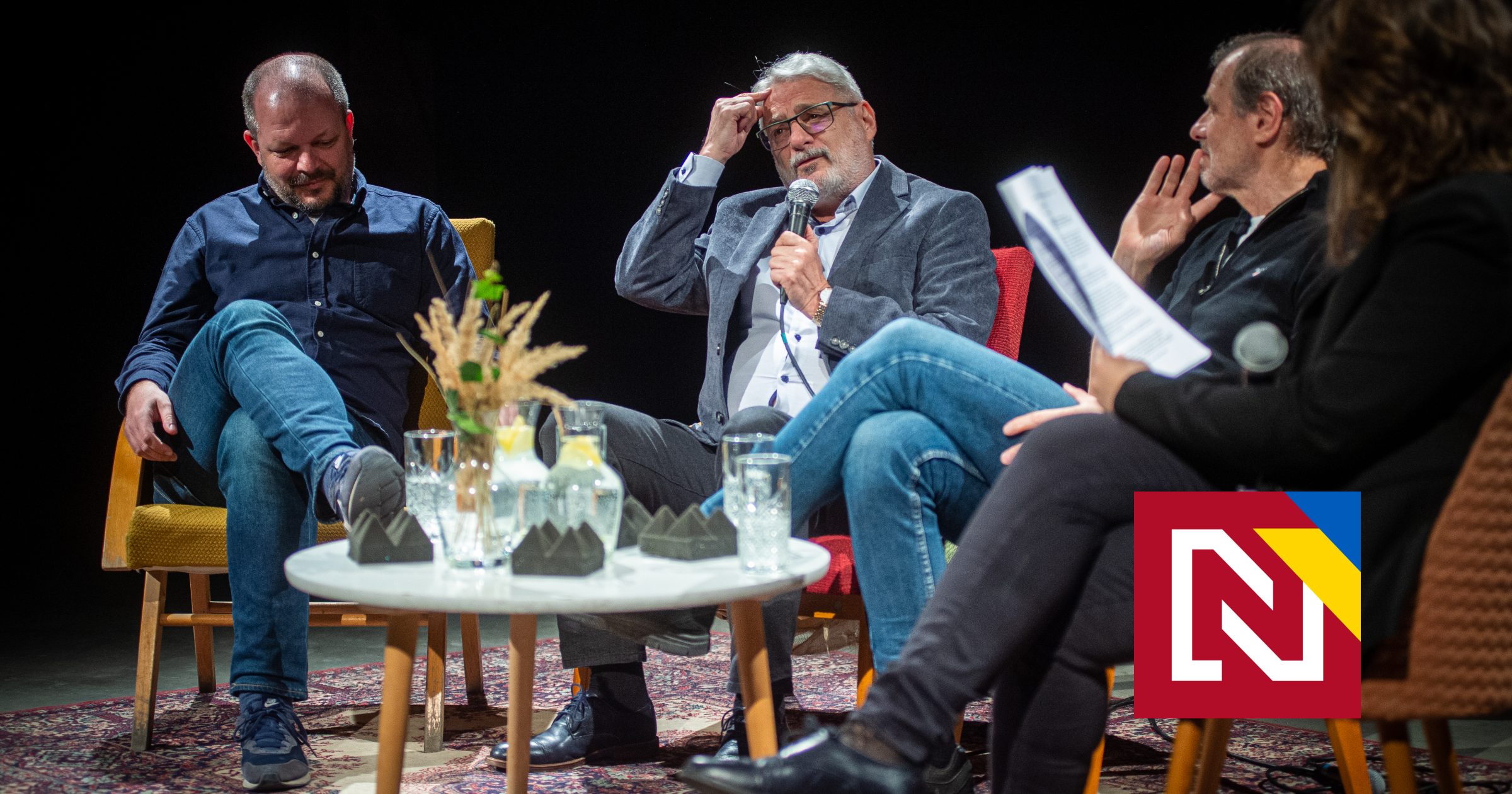The guests were the commentators Marián Leško and Martin M. Šimečka and the editor-in-chief of Denník N Matúš Kostolný. They also talked about the fact that these elections can decide whether we will remain in the European Union, how to deal with parties on the threshold of electability when they refuse to unite and tried to find something positive in a large part of Slovak political parties.
After our last discussion, Mr. Imrich Vašečka wrote to me, suggesting that we try harder to answer the question of how to save democracy. Readers nowhat instruction. How would you answer?
Marian Leško: I will take this opportunity to describe the difference between a politician and a journalist. Politicians are oriented towards gaining support, everything they do must have a purpose. They base their rating on how many people they have reached and convinced. As a journalist, I never had the ambition to convince anyone to start changing their preferences. It’s not our job. We are in the world of values. The knife in my pocket opens when I read what a wonderful politician Robert Fico is. I can’t see how he’s gaining support. It’s not like the four of us go somewhere and give instructions. We can just say what we think, how we evaluate those people.
Martin M. Šimečka: Sometimes I rack my brain with what I could say and how to save democracy. This is not a one-time thing. People could do it by persuading their neighbors and loved ones to vote. I don’t mean Fico voters or fascists, there is no point in convincing them, but those who are undecided, especially young people. They need to be told that it is their duty to vote for democratic parties. This can, if not save democracy, at least weaken the threat we face. My second thought is that voters should think rationally. Since we are in danger of many democratic parties not getting into parliament, because they are all on the edge of electability, those who cannot unite must be punished. The problem with past elections was that people bailed on political parties and went to vote not because they wanted to vote for them, but because they were afraid they wouldn’t get there. If the politicians are not able to make it easy for voters to choose, and there are three or four parties hovering around five percent and whose politicians are stupid enough to put us through that, they don’t deserve to get the votes.
Matúš Kostolny: How to save democracy? There is no easy recipe for this. It is not our job to say what should happen. If we as citizens screw it up, then it can’t turn out well. Gentlemen often quote emperors and people from the days of ancient Rome. Cicero said that there is no nobler reason for entering public life than to prevent evil men from ruling you. That’s the whole point.
Leško: When I finished in the president’s office, an influential politician invited me to a debate. He asked me a basic question that brought me to my knees – Mr. Leško, what would you advise us? The fact that we have been involved in politics for many years does not mean that we give advice. That’s what political marketers and specialists are for, people who think about who and how to reach. We decide whether it is in accordance with the constitution and the laws, in accordance with the public interest, whether it will stand up to criticism on its merits. To put it bluntly, we are advocates of the public interest and not someone’s party success. If politicians want our favor, it is very simple. Let them follow the public interest and they are guaranteed that we will love them.
Video: Discussion in Košice’s Tabačka – Šimečka, Kostolný, Leško: How to save democracy
Mr. Vašečka continued: “What does it mean to be successful in the upcoming elections? Win them over? Or prevent Robert Fico, Igor Matovič, Milan Uhrík or Marián Kotleba (Boris Kollár in brackets) from forming a government? I think the latter, and I think that is within the power of civil society.” What or who is that civil society and what should it do?
Simečka: We present that the term civil society is active and above all democratic citizens. However, that is not in the term, we interpreted it wrongly. In the 1990s, it was the citizens who helped defeat Vladimír Mečiar with their civic activities, but the other side learned exactly the same methods. When fascists go to help villages after floods and carry groceries home to grandmothers, it is the same type of civic activity, only with bad intentions. The situation is that our part of civil society is passive and the other part is active. I agree with Mr. Vašeček that it will be a success if we at least manage to ensure that the government is not formed by the bad guys. I see no better hope than to cling to at least this.
